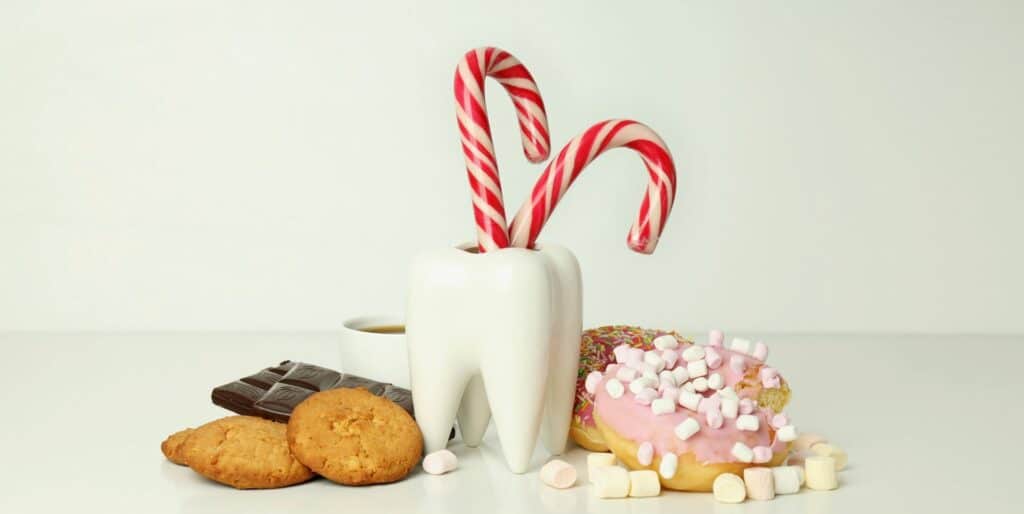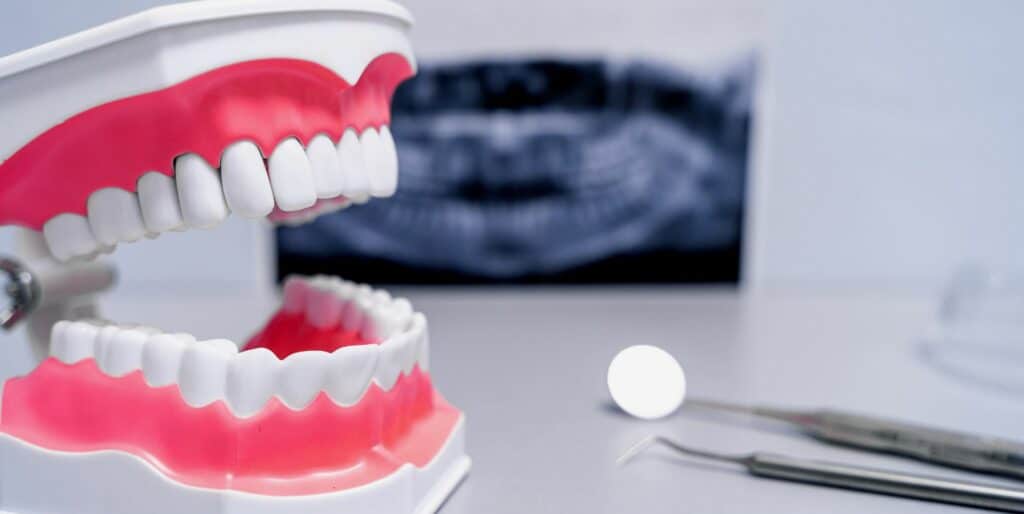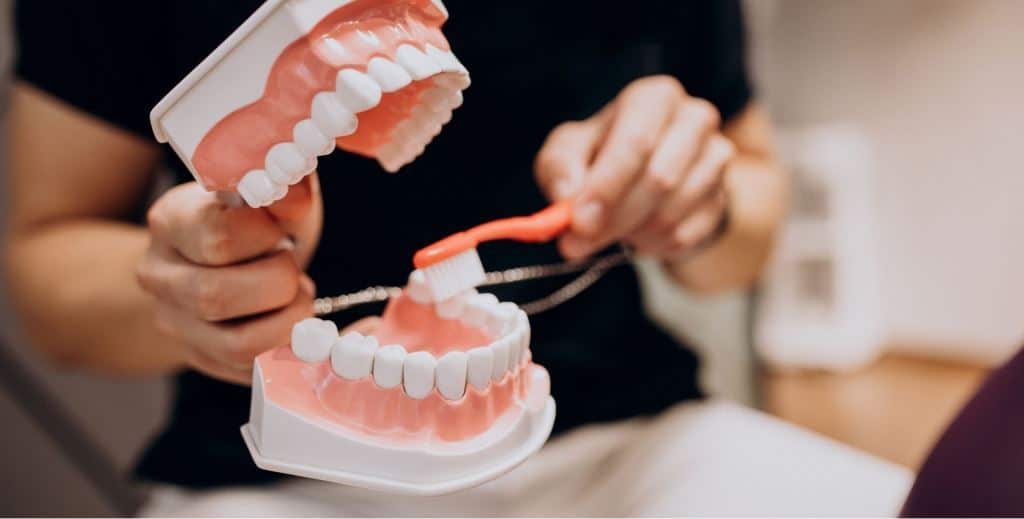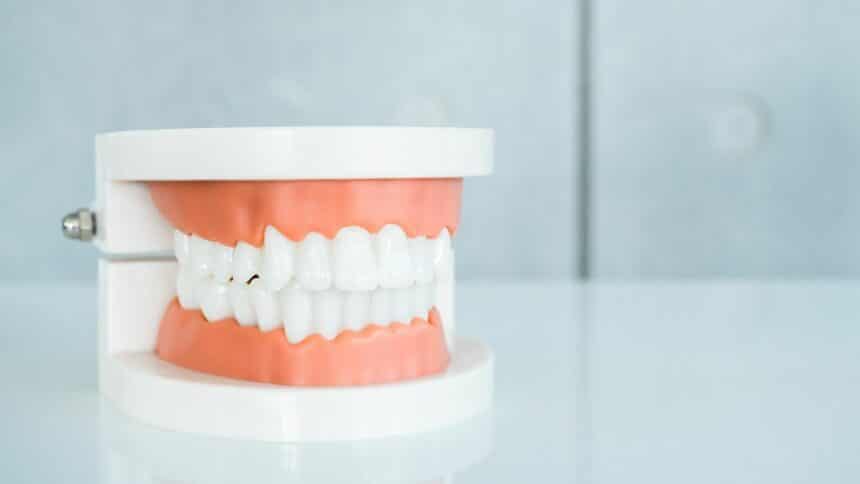You certainly take the best possible care of your teeth every day. You follow all the rules of proper oral hygiene, and you visit your dentist regularly. However, are you aware that too much of certain drinks and foods in your diet can cause enamel erosion? Read what exactly it is and, more importantly, how to prevent it!
Enamel erosion - what is it?
Enamel erosion is the weakening and even loss of its outer layer. You need to know that tooth enamel is one of the hardest tissues in your body. It would seem that you have to work hard to destroy it - however, failure to follow oral hygiene rules, as well as neglecting visits to the dentist, can make this process much easier!
How do you know if your enamel is eroding?
One of the characteristic signs of enamel erosion is the tooth sensitivity. An unpleasant, penetrating pain that occurs when you drink cold or hot drinks, among other things. Another sign is discolouration. Also pay attention to whether surfaces have appeared on your teeth that are very smooth and shiny. They indicate that the enamel has lost valuable minerals!
Also, do not ignore various types of cracks, chipping - even if they are not visible at first glance - as well as dents on the surface of the teeth. We encourage you that if you have noticed even one of the signs mentioned here - be sure to visit your dentist!

Enamel erosion - causes
That's fine, but what is it that makes enamel - one of the hardest tissues - erode? The answer is simple. The culprit is the acids that enter your mouth with food and drinks. These chemically alter the structure of your enamel, so it becomes weakened.
So what should you watch out for? Any acidic jelly beans, sweets; sweet, artificial juices and other drinks. It is also a good idea to limit alcohol, and to watch the amount of sugar, starches and citrus in your diet.
Enamel erosion is also encouraged by dry mouth, so drinking enough water daily will certainly help. This additionally rinses the entire mouth and removes bacteria from it.
Remember that teeth grinding can also be a cause of erosion. This ailment is called bruxism and, from what specialists have so far been able to establish, it has a stress-related origin. You can read more about this in our article: "Bruxism, or teeth grinding - where does it come from and how to get rid of it?".

How to effectively treat the effects of enamel erosion?
We have no good news - the changes caused by erosion cannot be repaired. They are irreversible. The only solution for lesions that have already developed is to fill them with composite, in other words, to place a filling. This will prevent the damage to the tooth from progressing.
So you can see that prevention is particularly important in this case. And this one is much simpler than you might think!
How to prevent erosion?
We have already mentioned limiting certain foods and drinks, but this step is not at all crucial. The most important thing is good oral hygiene! Brushing properly, using mouthwash and flossing will allow you to enjoy a beautiful smile at all times.
We know that correct tooth brushing technique is not obvious to everyone. So we have prepared an article that may help you: "How do I brush my teeth properly?". The same is true for flossing. We have outlined the correct technique in our following article: "How do you floss your teeth and why is it so important?". Read on and find out how to look after your smile properly from now on!
Of course, in addition to brushing, flossing and rinsing, regular visits to the dentist are hugely important! Take some time once every 6 months to make sure your teeth are in order. It is better to treat small cavities than to face the consequences of neglect later!

Brushing your teeth right after a meal? Not this time!
It is very important that every time you want to brush your teeth after eating something acidic or even after drinking a few sips of a carbonated beverage, you should wait at least 30 minutes. It would seem that a quick reaction - i.e. getting rid of food and liquid from your teeth immediately after eating - would be the perfect solution. Unfortunately, this is not true!
You need to know that this practice will result in abrasion of the affected, the outer surface of the enamel, which will only intensify the erosion process! Instead of brushing straight away, simply rinse your mouth with water. This will help prevent the problem.
We cannot fail to mention that it is also very important to choose the right toothbrush. A toothbrush that is too hard, combined with the wrong technique, can damage your enamel, even if you use it 30 minutes after eating. Read, which toothbrush is best - and take even better care of your teeth!
And if you have questions or would like to speak to an appointment - please get in touch.

